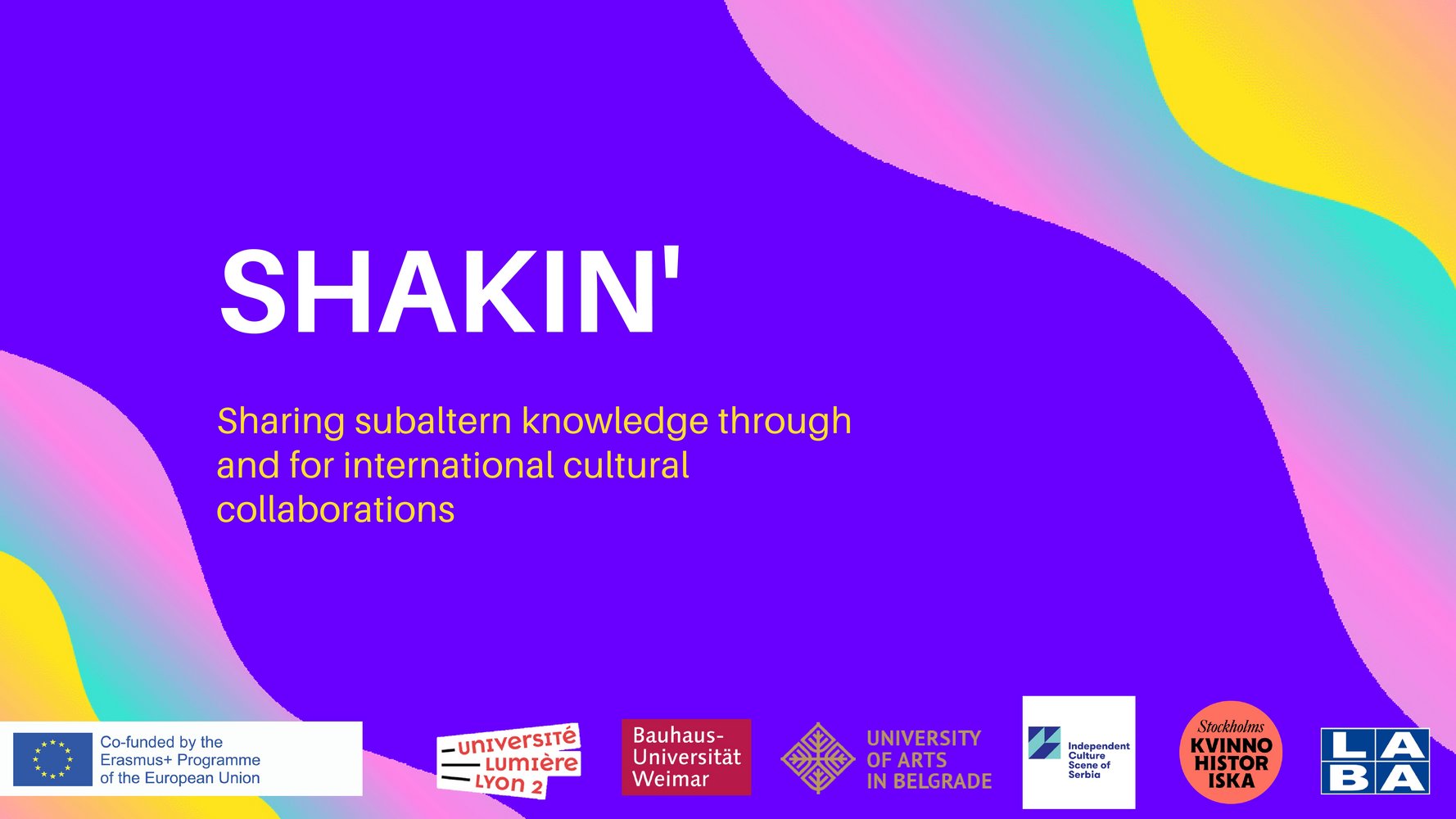About the project

The project is carried out by six partners from four countries (France, Germany, Serbia, Sweden): three universities (University Lumière Lyon 2, Bauhaus-University Weimar, University of Arts Belgrade) and three cultural organizations (Association Independent Cultural Scene Serbia, Stockholm Museum of Women’s History, le LABA), all of them being internationally recognised in their domain of activity.
We, the partners, join our expertise to find new ways to think, work and collaborate that address crucial contemporary challenges affecting European culture fields in order to provide students with adequate professional ethos for the jobs of tomorrow. We aim to engage with perspectives, knowledges, methods of learning and knowledge sharing which are on the margins of the current dominant ways of schooling and professionalizing in culture and media fields.
Indeed, market logic, populist policies, migrations and globalization, ecological transition or digital technologies affected the contexts of culture management, policy, research, and teaching in various tectonic ways over the last decades. But teaching and training in culture fields have largely maintained narrowly professional, nation-based assumptions of culture, politics, participation and education. As a result, learning processes are not just ill-fitting to provide relevant knowledge and “well-equipped” professionals, but are insensitive to excluded, marginalised and oppressed voices and life experiences of today.
Objectives
SHAKIN’ pursued three interrelated objectives:
- Connecting academic and subaltern knowledges through sharing research methodologies in innovative forms of thinking, learning and teaching. We advocate for the constant imbrication of academic, artistic and subaltern knowledge, for the activation of critical theories in professional environments and the implementation of subaltern knowledge within academia. We impacted our existing curricula and developed training models for other institutions.
- Professionalising (post-graduate) students with new forms of cultural consciousness, nurtured by theoretical tools and endorsed by practical skills. We empowered all the participants and participating organisations by giving them action research skills and by supporting innovative ways of working with others, based on the idea of collective creativity.
- Supporting international cooperation through projects including subaltern perspectives. Culture professionals are growingly required to “go international”, at the risk of exoticism, depoliticization, standardization. We conversely promoted meaningful international projects that rely on mutual understanding, situatedness, specific expertise.
Outcomes
If you would like to know more about our working processes and activities subscribe to our Newsletter or visit https://welcome.univ-lyon2.fr/shakin!







